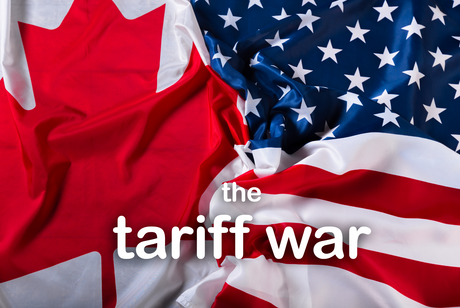If you've failed the city's inspection regarding the single-use plastic legislation in Montreal, here are the potential consequences you may face, followed by steps on how to address a resulting fine:
Potential Consequences of Failing the City's Inspection
-
Issuance of a Fine:
- Immediate Penalties: You may receive an immediate fine for non-compliance, with the amount depending on the severity and frequency of the violation.
-
Escalating Fines: Repeated violations could result in escalating fines, making it more costly for your business over time.
-
Formal Warning:
-
Written Notice: The city might issue a formal warning before levying a fine, detailing the specific areas of non-compliance and giving you a deadline to rectify the issues.
-
Written Notice: The city might issue a formal warning before levying a fine, detailing the specific areas of non-compliance and giving you a deadline to rectify the issues.
-
Follow-up Inspections:
- Increased Scrutiny: Expect follow-up inspections to ensure compliance, which could lead to additional fines if violations persist.
-
Scheduled Re-inspections: You may be required to schedule a re-inspection to demonstrate compliance with the law.
-
Reputational Damage:
- Public Record: Fines and violations may become part of the public record, potentially harming your business's reputation and customer trust.
-
Negative Publicity: Media coverage of non-compliance could lead to negative publicity, impacting your brand image.
-
Operational Disruptions:
- Forced Compliance: You might have to make immediate changes to your operations, which can disrupt business and incur additional costs.
- Supply Chain Adjustments: Switching to compliant products may affect your supply chain, requiring new suppliers or inventory changes.
Steps to Address the Fine
Once you receive a fine, follow these steps to effectively handle the situation:
1. Understand the Violation
- Review the Fine: Carefully read the details of the fine, including the violation cited, the amount, and any deadlines for payment or response.
- Identify the Specific Violation: Determine which part of the legislation you violated. This could involve specific banned items like plastic bags, straws, utensils, etc.
2. Gather Evidence
- Documentation: Collect any evidence that may support your case if you believe the fine was unjustified. This could include receipts, photos, or witness statements.
- Compliance Efforts: Document efforts you have made to comply with the regulations, such as purchasing compliant alternatives or staff training.
3. Consult the Legislation
- Review the Law: Familiarize yourself with Montreal's by-laws on single-use plastics to ensure you understand the requirements and exceptions.
- Determine Compliance: Check if there are any exemptions or specific conditions that apply to your situation.
4. Consider Contesting the Fine
- Legal Advice: Consult with a legal expert or attorney who specializes in environmental or municipal law to explore your options for contesting the fine.
- Submit an Appeal: If you decide to contest the fine, follow the procedure outlined in the fine notice. This typically involves submitting an appeal within a specific timeframe.
- Prepare Your Case: Gather evidence and prepare a clear argument for why the fine should be reduced or dismissed.
5. Pay the Fine
- Payment Options: If you choose not to contest the fine or are unsuccessful in your appeal, make sure to pay it by the due date to avoid additional penalties.
- Installment Plans: In some cases, you may be able to negotiate a payment plan if the fine is substantial.
6. Implement Compliance Measures
- Switch to Alternatives: Ensure your business or personal practices comply with the regulations by using approved alternatives to single-use plastics.
- Educate Staff: Train employees on the importance of compliance and the specifics of the legislation.
- Monitor Compliance: Regularly review practices to ensure ongoing compliance with the law.
7. Stay Informed
- Updates on Legislation: Keep up-to-date with any changes or updates to the law to ensure continued compliance.
- Attend Workshops: Participate in local workshops or seminars that provide information on sustainable practices and compliance strategies.
8. Community Engagement
- Publicize Efforts: Share your efforts to comply with the legislation and promote sustainable practices, which can enhance your reputation and customer relations.
- Collaborate with Others: Work with other businesses or community organizations to find solutions and alternatives to single-use plastics.
Key Considerations
- Understanding the Impact: Recognize the environmental impact of single-use plastics and the importance of compliance for sustainability.
- Financial Implications: Consider the potential cost savings in the long term by adopting sustainable practices and avoiding future fines.
- Corporate Responsibility: Embrace corporate social responsibility by aligning business practices with environmental goals.
By taking these steps, you can effectively manage the situation and ensure compliance with Montreal’s single-use plastic legislation moving forward.





